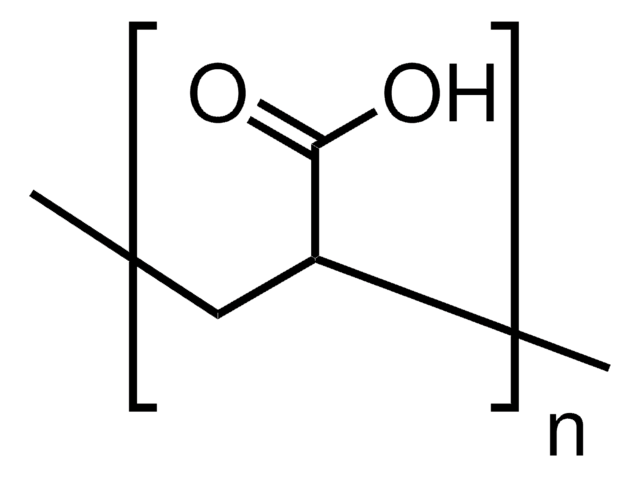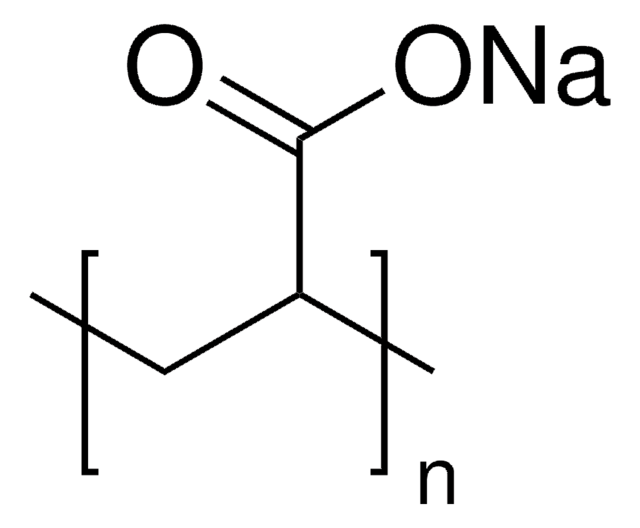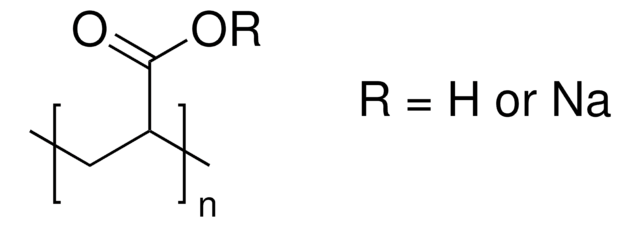535931
Poly(acrylic acid) solution
average Mw ~2,000, 50 wt. % in H2O, electronic grade
Sinónimos:
PAA
About This Item
Productos recomendados
grade
electronic grade
Quality Level
mol wt
average Mw ~2,000
concentration
50 wt. % in H2O
bp
116 °C
density
1.15 g/mL at 25 °C
SMILES string
OC(=O)C=C
InChI
1S/C3H4O2.Na/c1-2-3(4)5;/h2H,1H2,(H,4,5);/q;+1/p-1
InChI key
NNMHYFLPFNGQFZ-UHFFFAOYSA-M
¿Está buscando productos similares? Visita Guía de comparación de productos
Categorías relacionadas
General description
Application
- a surfactant in the formation of photonic crystals
- a binder for the development of Silicon anode based lithium ion batteries
- polyelectrolyte membranes for electronics and optoelectronics based applications
signalword
Danger
hcodes
Hazard Classifications
Aquatic Acute 1 - Aquatic Chronic 2 - Eye Dam. 1 - STOT SE 3
target_organs
Respiratory system
Storage Class
10 - Combustible liquids
wgk_germany
WGK 1
flash_point_f
Not applicable
flash_point_c
Not applicable
Elija entre una de las versiones más recientes:
¿Ya tiene este producto?
Encuentre la documentación para los productos que ha comprado recientemente en la Biblioteca de documentos.
Los clientes también vieron
Artículos
Magnetic-plasmonic nanoparticles offer the combined benefits of both a magnetic probe as well as additional imaging modes usually associated with noble metal nanoparticles. Professor Shinya Maenosono (Japan Advanced Institute of Science and Technology) explores the synthesis, characterization, and proof-of-concept application of Ag/FeCo/Ag core/shell/shell magnetic-plasmonic nanobeads for imaging and isolation of cellular organelles (autophagosomes of COS-1 cells).
Nuestro equipo de científicos tiene experiencia en todas las áreas de investigación: Ciencias de la vida, Ciencia de los materiales, Síntesis química, Cromatografía, Analítica y muchas otras.
Póngase en contacto con el Servicio técnico





